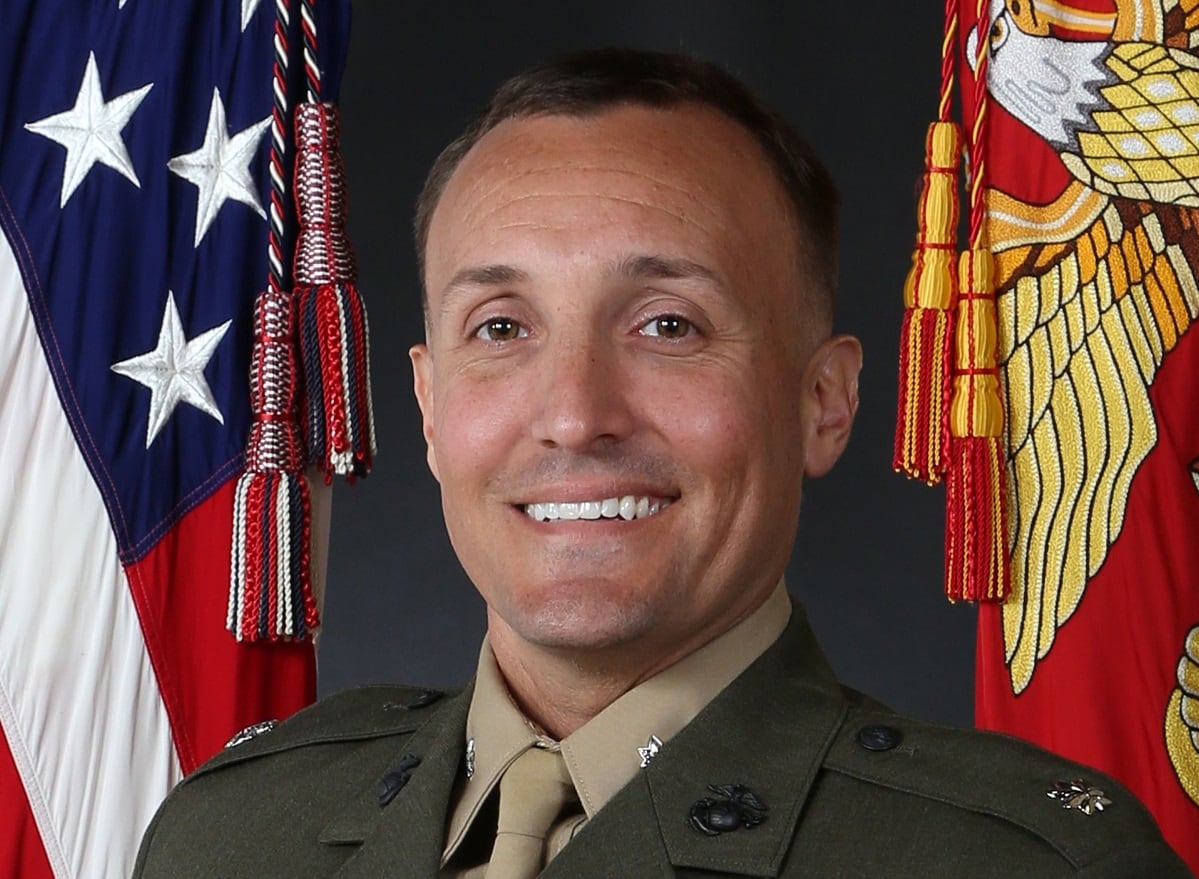U.S. Marine battalion commander Lt. Col. Stuart Scheller was fired on Aug. 27 after he posted a video on LinkedIn and Facebook criticizing the “ineptitude” of U.S. military leadership over the disastrous withdrawal from Afghanistan and demanding “accountability” from those involved.
No one was surprised at the decision to fire him — least of all Scheller, who commented in a social media post, “My chain of command is doing exactly what I would do…. if I were in their shoes.”
All of us who have worn the same uniform know that his actions violated the canons of our profession — so did he. Scheller broke the rules, and there is little room to question the rationale for his firing. Unfortunately, the method in which Scheller chose to deliver his message has become a distraction from the message itself.
The question of senior officer accountability over the Afghanistan debacle is not one that can simply be dismissed alongside Scheller with the usual tired trope about “loss of trust and confidence” and dissembling comments about this being an emotional time for all Marines.
RELATED

Tomorrow the news cycle moves on, and Scheller’s outburst and subsequent dismissal largely will be forgotten — and that is how it should be. But let’s not conflate his story with the questions that he asked, which were not unreasonable.
Why indeed, despite two decades of grinding deployments, the loss and maiming of thousands of our comrades and the untold misery the war has inflicted on the Afghan people, did we find ourselves running for the exits, leaving those who fought with us to the mercy of our erstwhile enemy?
It was the loss of 13 more Americans at the end of August that brought this question into sharp focus.
From the four-star generals at the nexus between policy and strategy, down to a squad of lance corporals, with names and backgrounds that span the broad and diverse canvas of our country, there was a chain of command. And a series of decisions. An opportunity to exercise moral autonomy in the gap between receipt of order and execution. An opportunity to advise, dissent — and if that failed — to resign.
Four-star general officers are treated with great respect in the U.S. military — akin to modern day viceroys.
But this adulation isn’t supposed to be all one way. It’s an acknowledgment that these men and women carry the weight of great responsibility, and an implicit understanding that they will take ownership when things go wrong.
Their exalted position shouldn’t permit them to execute without question an interminable and costly war to no end. Or, worse, to offer continuous assurance that the war was going well when it wasn’t. Or to acquiesce to a hasty withdrawal that blatantly failed the reasonable man test at every level — tactically, operationally and strategically.
Good order and discipline, the very fabric of any military organization, depends on leaders understanding that there will be times when they must order subordinates to do things that will cause them hardship or worse. But if the mission involves risking subordinate lives for the pursuit of goals that are unobtainable or indecipherable, at what point does the leaders’ responsibility shift from the mission to the men?
Those who reply “never,” miss an important distinction.
Officers and enlisted personnel both take an oath of office. Both swear to support and defend the constitution against all enemies foreign and domestic.
But while officers promise only to execute their duties to the best of their abilities, enlisted personnel pledge to obey all those placed over them. Those involved in the chain of decisions that led to the debacle at the Kabul, Afghanistan, airport would do well to understand this distinction. Because those out on the security cordon, who gave their lives, had taken that oath. They had promised to obey.
The choices facing senior officers in their dealings with civilian leadership are admittedly limited. They are expected to offer their opinion, even when, or especially when, it conflicts with a proposed course of action. If their advice is not taken, they can choose to resign or execute the plan. What they can’t choose to do is absolve themselves of responsibility when that plan goes awry.
Despite two wars that have seen their shares of disasters — not a single general officer has been relieved of his duties for incompetence — and only one has resigned on a question of principle.
Scheller, on the other hand, is just one of many regimental and battalion commanders relieved of their duties over the course of past two decades, and soon the ripples that he caused will subside.
That shouldn’t distract from the fact that many in uniform — and indeed many veterans of all services — are asking the same questions.
If the past is any indication though, these will continue to go unanswered.
Andrew Milburn retired from the Marine Corps as a colonel in 2019 after a 31-year career. His final position in uniform was deputy commander of Special Operations Central, and prior to that commanding officer of the Marine Raider Regiment and Combined Special Operations Task Force–Iraq. Since retiring, he has written a critically acclaimed memoir, “When the Tempest Gathers.” He is a co-host of the Modern War Institute’s Irregular War Podcast and Irregular War Initiative.




